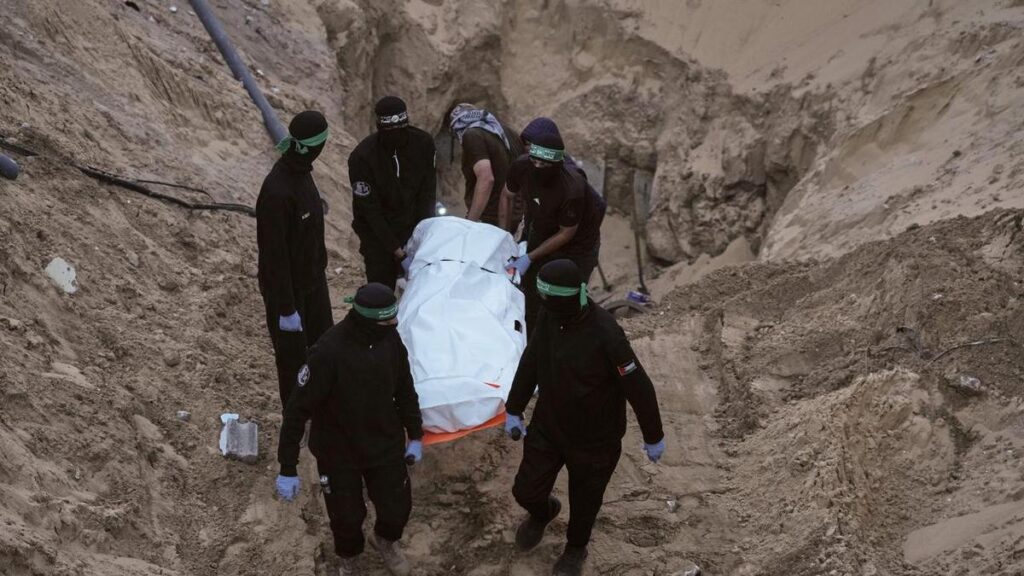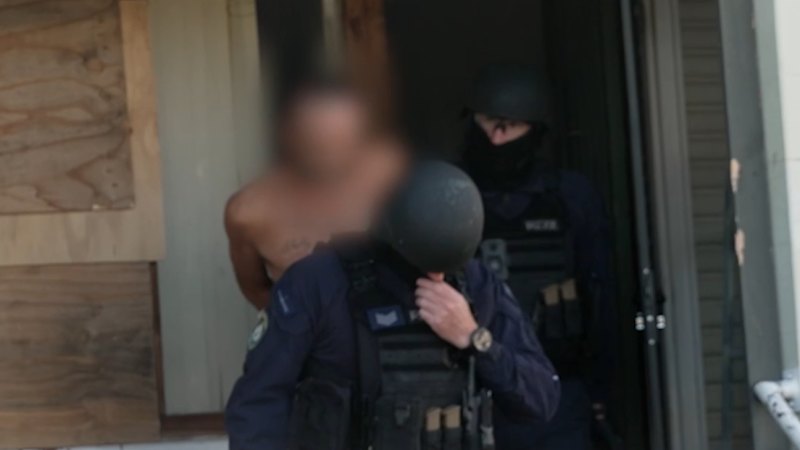
UPDATE: Israel has confirmed that the remains of three individuals handed over by Hamas to the Red Cross do not belong to any hostages. This critical announcement comes amid rising tensions that could jeopardize the fragile US-brokered ceasefire in the ongoing Israel-Hamas conflict.
Late on Friday, October 13, 2023, the remains were returned to Israel, following Israel’s return of 30 Palestinian bodies to Gaza. This exchange initially seemed to signal progress in the tense ceasefire agreement, which has been in effect since October 10.
According to Israeli military officials, intelligence indicated that the unidentified remains do not correspond to any of the hostages taken during the brutal October 7 attack, which ignited the current war. A military source stated, “The remains we received are not our hostages,” a sentiment echoed by the office of Prime Minister Benjamin Netanyahu on Saturday.
It remains unclear who the returned remains belong to or the circumstances surrounding their handover. The lack of clarity raises further questions about the ongoing negotiations and the broader humanitarian crisis unfolding in the region.
Since the ceasefire took effect, Hamas has released the remains of 17 hostages held in Gaza for two years. However, the process of returning the bodies of the final 11 hostages stipulated in the truce has been sluggish, with only one or two bodies being returned every few days. To date, Israel has returned a total of 225 Palestinian bodies since the ceasefire began, yet only 75 of these have been identified by their families, according to Gaza’s health ministry.
The situation escalated recently when Israel conducted strikes across Gaza, resulting in over 100 deaths. This violence followed the death of an Israeli soldier in Rafah, further straining the already precarious ceasefire agreement.
As the situation develops, the international community watches closely, aware that any misstep could have severe ramifications for both the ceasefire and the humanitarian crisis affecting countless families in the region.
NEXT STEPS: Observers are urged to monitor the situation as negotiations continue and the exchange of bodies remains a critical aspect of the ceasefire agreement. The unfolding developments could shape the region’s future and impact ongoing humanitarian efforts.
Stay tuned for more updates as this story evolves.






